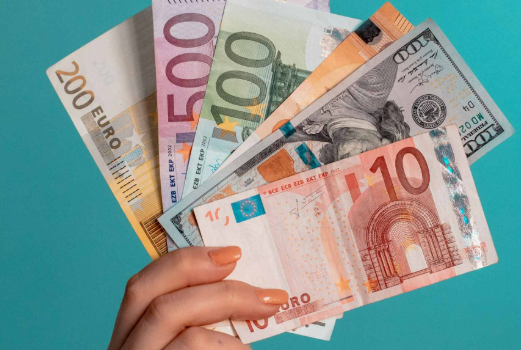
When you’re planning an international trip, one of the most crucial aspects to consider is how to manage your finances while abroad. Whether you’re wondering how to withdraw cash, use cards, or exchange money, it’s important to be prepared for all financial situations. Here’s a personal guide on how to exchange money abroad based on my years of travel experience.
Bank Accounts: Choose Wisely for Your Travels
Before worrying about how to exchange money abroad, it’s important to ensure your bank is travel-friendly. The right bank account can make all the difference during your trip.
Look for No Foreign Transaction Fees
When choosing a bank account for travel, opt for one that doesn’t charge foreign transaction fees. These fees might seem small, but they can add up over time. Many banks offer accounts specifically for travelers, with no additional charges for international transactions. Examples of such banks include Capital One, HSBC, and Charles Schwab.
Easy Access to Customer Service
If you’re traveling internationally, customer support is key. Make sure your bank offers easy access to customer service, whether online or by phone. Being able to speak with someone directly in case of any issues with your account is invaluable when abroad.
Organizing Your Finances Before Traveling
Notify Your Bank of Your Travel Plans
It’s always a good idea to inform your bank about your travel plans. This prevents them from mistakenly flagging international transactions as suspicious. Some banks may block foreign transactions unless notified, so it’s better to be proactive.
Access to Your Bank Account Abroad
Ensure you can easily access your account while traveling. Download your bank’s app and make sure it works abroad, either through mobile data or Wi-Fi. Consider getting an eSIM to have constant internet access for managing your funds on the go.
Separate Spending and Savings Accounts
Keep your spending account separate from your savings. Only transfer the money you need for daily expenses to your spending account to protect your savings from potential fraud.
Cash: How to Handle Foreign Currency
Despite the rise in digital payments, cash is still necessary in many places around the world. Knowing how to handle cash exchange abroad is essential.
Exchanging Currency
You can exchange your home currency for the local currency either before you leave or after you arrive. Many travelers choose to exchange money at the airport, but it’s often better to avoid doing so unless necessary, as exchange rates tend to be less favorable. Alternatively, you can visit a local bank for better rates.
Withdrawing Cash at ATMs
Using ATMs to withdraw cash in the local currency is often the easiest and most cost-effective way to get money abroad. ATMs are widely available at airports and local banks. Be aware that some ATMs may charge a small fee for international withdrawals, so it’s a good idea to withdraw a larger amount at once to minimize fees.
ATM Tips: How to Avoid Extra Charges
When using an ATM abroad, always choose one located at a local bank for added security and a reliable exchange rate. Avoid exchange booths or ATMs located in tourist-heavy areas, as they may charge higher fees. To save on transaction costs, withdraw in bulk to minimize the number of ATM visits.
Handling Cash Safely
Keep your daily spending money in a small wallet or pouch, and leave the rest securely locked in a hotel safe or locker. This minimizes the risk of losing all your funds in case of theft. It’s also wise to carry a small amount of emergency cash for situations where cards aren’t accepted.
Credit and Debit Cards: Using Them Abroad
Use Cards with No Foreign Transaction Fees
One of the most important tips for using credit or debit cards abroad is to make sure they don’t have foreign transaction fees. Using a card with no extra charges allows you to make purchases without worrying about additional costs.
Bring Both Debit and Credit Cards
While credit cards are excellent for paying for most things, it’s always a good idea to bring a debit card for withdrawing cash. Keep your cards in a safe, easily accessible place, and avoid carrying all of them at once. If possible, use a credit card for major purchases and a debit card for cash withdrawals.
Set a Spending Limit on Your Card
Consider setting a spending limit on your credit or debit card to limit the damage in case of theft or loss. Regularly check your accounts to ensure there are no unauthorized transactions.
Staying Secure with Your Cards
Always keep your credit and debit cards in a safe spot. While traveling, keep your cards in a secure place, such as a zippered compartment in your bag or a hidden pouch. For safety, consider using a lockable storage option at your accommodation.
Conclusion: Stay Safe and Prepare Financially
Exchanging money and handling finances while traveling doesn’t need to be stressful. With the right preparation, you can ensure your financial security while enjoying your travels. Whether you prefer using cards or cash, the key is being mindful of fees and security. Don’t forget to notify your bank, manage your accounts wisely, and stay aware of any transaction costs.
By taking the time to plan ahead, you can travel abroad without worrying about your finances and focus on making the most of your trip.






